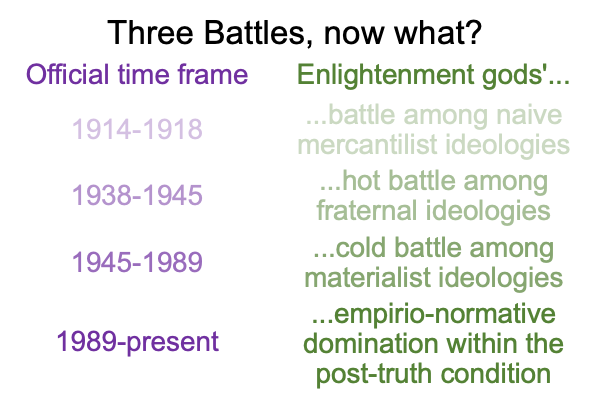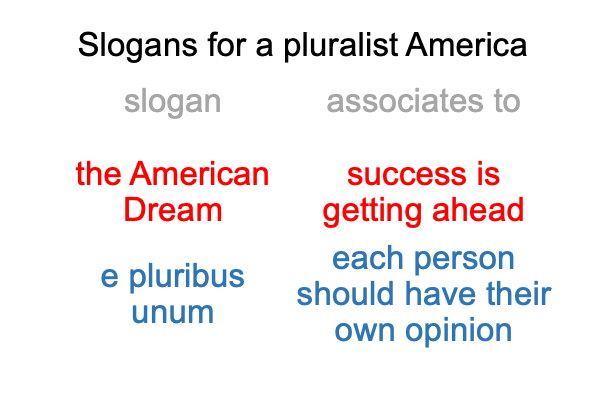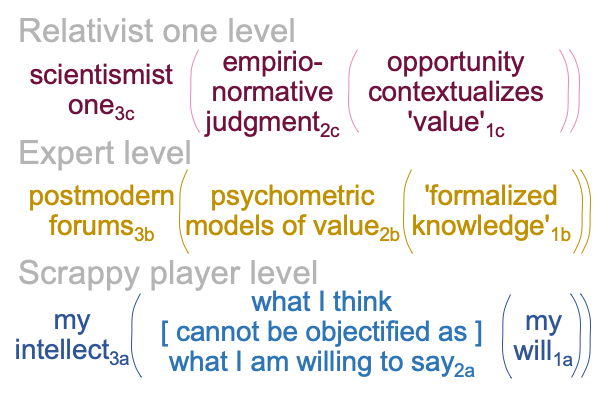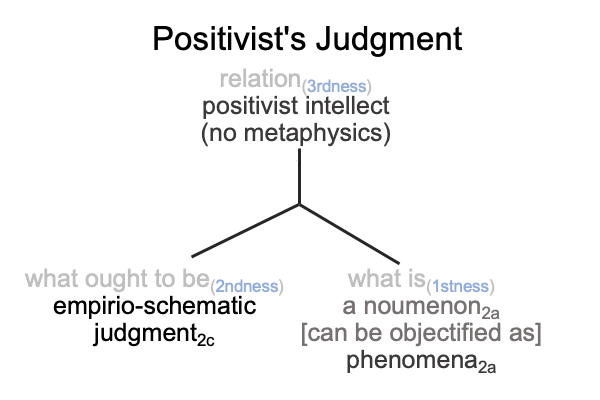0255 The full title of the book before me is Woke, Inc.: Inside Corporate America’s Social Justice Scam (Center Street Press: Nashville and New York). The book consists of an introduction, followed by fifteen chapters.
0256 Why am I numbering the start of this examination with the number that follows the end of Professor Steve Fuller’s 2020 book, A Player’s Guide to The Post-Truth Condition?
Well, I have a question.
Is Fuller on target?
0257 One way to address this question is an examination of an author who is a player in the current theo-political dramaof the Fourth Battle of the Enlightenment Gods (1989-present).
Vivek Ramaswamy offers a book that suits the purpose. Take a look at the table of contents. The title of the introductionis “The Woke-Industrial Complex”. The title of the final chapter is “Who are We?”
0258 Are “we” the ones who have substituted the broadcasts of the empirio-normative judgment for our own thoughts, so what we say can be objectified as phenomena for the psychometric sciences?
Or are “we” the ones who read the previous sentence and ask, “What the hell are you talking about?”
The choice is clear.
0259 We are in the fourth world war. I call it The Fourth Battle of the Enlightenment Gods: Empirio-Normative Domination in the Post-Truth Condition.
Here is a list of all four wars.

0260 Of course, those who are certified in modern history will classify this list as “revisionist”.
But, reflect on the titles of the introduction and chapter fifteen of Ramaswamy’s book and ask, “Just who is acting as a revisionist?”
Woke, Inc.?
Or, the confounded subject of domination.
0261 In the introduction, Ramaswamy claims that two characteristics define America as a nation.
The first is the American Dream, where “success” is regarded in terms of “getting ahead”. To many, “getting ahead” is associated with capitalism.
The second is the Latin slogan, e pluribus unum, out of many, one. Pluralism celebrates a variety of views and the challenges of convincing others of the relevance of one’s own view. We all have this in common. Everyone has an opinion. Ramaswamy associates this to democracy.
0262 Here are the associations.

0263 But, how do these slogans associate to the interscope for the post-truth condition?
Yes, I must go there.
The following interscope is typical for the many interscopes that appear in the examination of Fuller’s guide.

0264 For the content-level, the normal context of my intellect3a brings the dyadic actuality of what I think [cannot be objectified as] what I am willing to say2a into relation with the possibilities inherent in ‘my will’1a
What is the nature of this dyadic actuality2a?
It has to do with science.
What I think is like a noumenon, a thing itself.
What I say is like its phenomena, the observable and measurable facets of a thing.
According to Kant’s slogan, a noumenon [cannot be objectified as] its phenomena.
Therefore, what I think [cannot be objectified as] what I say.
0265 Kant’s slogan figures in what is in the Positivist’s judgment.
Here is a diagram.

0266 Clearly, the content-level actuality2a corresponds to what is of the Positivist’s judgment.
If logical positivists had their way, they would dismiss the noumenon as a stumbling block for scientific inquiry into phenomena. This is precisely why Kant insists on the realness of the noumenon, in addition to its phenomena. Scientific models are not the same as the thing itself, even though triumphalist scientists would have models replace their noumena.
Nevertheless, for most sciences, the noumenon is merely a book-keeping entry corresponding to what is responsible for observable and measurable phenomena.
So, I repeat.
What I think is a book-keeping entry.
What I say corresponds to what the psychometric sciences observe and measure.
